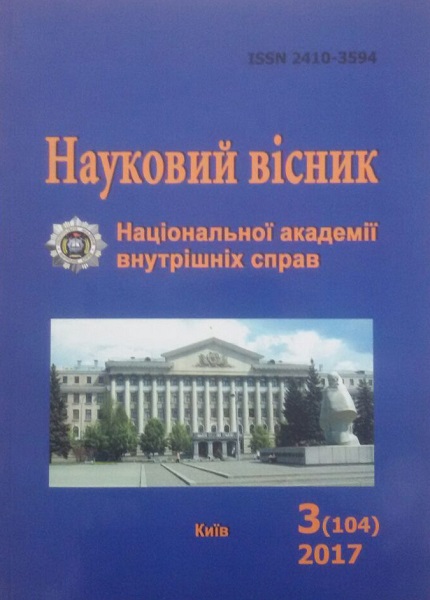Constitutional and Legal Bases of the State Policy of Ukraine
Abstract
Theoretical and legal research of the constitutional and legal
principles of the state policy of Ukraine is examined in the article; the
content of the article and conclusions about the significance of each
of them in the forming of the policy in the context of European
integration of Ukraine are formulated.
The need for a legal understanding of the transformation of the
state policy is urgent in view of the need for the country’s
administrative reform, local self-government reform, reforms in the
sphere of internal affairs and other urgent measures related to the
development democracy and the improvement of legal statehood.
It is grounded that the Constitution of Ukraine consolidates the
fundamental, general legal principles of the formation and
implementation of state policy in all spheres of its existence.
The following constitutional and legal principles are proposed to
consider: the priority of a person of his life and health, honor and
dignity, inviolability and security, rights and freedoms in the activities
of state authorities; the ambush of national sovereignty; state
sovereignty; compliance of the state policy with the norms of
international law and the provisions of international treaties; the rule
of law; the values of the nation; political, economic and ideological
diversity; legality, etc.
The constitutional and legal principles of the state policy of
Ukraine are proposed to be understood as the fundamental, guiding
ideas (principles) enshrined in the Constitution of Ukraine, on the
basis of which a single state policy is implemented to meet the needs
and interests of a person and a citizen.
Downloads
Abstract views: 85 PDF Downloads: 174
- Authors reserve the right to authorship of their own work and transfer to the magazine the right of the first publication of this work under the terms of the Creative Commons Attribution License, which allows other persons to freely distribute published work with mandatory reference to authors of the original work and the first publication of an article in this magazine.
- Authors have the right to enter into separate additional agreements on non-exclusive dissemination of the work in the form in which it was published in the journal (for example, to post an article in the institution's repository or to publish as part of a monograph), provided that the link to the first publication of the work in this journal is maintained.
- The journal's policy allows and encourages the posting of articles by authors on the Internet (for example, in electronic storehouses of institutions or on personal websites), both before the submission of this manuscript to the editorial office and during its editorial processing, as this contributes to the creation of a productive scientific discussion and positively affects the efficiency and dynamics of citing the published work.




